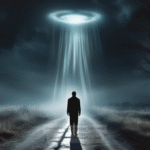Can Psychic Abilities Be Scientifically Tested and Proven?
Can Psychic Abilities Be Scientifically Tested and Proven?
The enigmatic world of psychic abilities has long fascinated humanity, straddling the line between the mundane and the extraordinary. As scientific exploration advances, the question of whether psychic phenomena can be empirically tested and validated becomes increasingly relevant. This inquiry not only challenges our understanding of consciousness and perception but also invites us to reconsider the boundaries of science and the metaphysical. In this blog post, we will delve deep into the realm of psychic abilities, examining historical accounts, scientific investigations, and the implications of these phenomena in our contemporary understanding of the world.
Historical Context of Psychic Abilities
The concept of psychic abilities is not a modern phenomenon; it has roots that go deep into human history. From ancient civilizations that revered oracles and seers to the spiritualist movements of the 19th century, the idea of tapping into a realm beyond ordinary perception has captured the imagination across cultures. Historical figures such as Nostradamus and Edgar Cayce have left legacies that continue to provoke interest and skepticism alike.
In the late 1800s, the rise of spiritualism brought psychic phenomena into the limelight, leading to a surge in public interest and the establishment of various organizations aimed at investigating these claims. The Society for Psychical Research, founded in 1882 in the UK, was one of the first to apply scientific methods to the study of psychic phenomena. Despite numerous investigations, definitive proof remained elusive, leading to a complex interplay between belief and skepticism that persists today.
Core Concepts of Psychic Phenomena
Psychic abilities encompass a range of phenomena, including telepathy, clairvoyance, precognition, and psychokinesis. These abilities suggest a level of perception or interaction with the world that transcends our known sensory experiences. Understanding these core concepts involves exploring how they are defined, how they are reported, and the implications of their existence.
Telepathy refers to the supposed ability to transmit thoughts or feelings between individuals without using known human senses. Clairvoyance is the purported ability to gain information about an object, person, location, or event through extrasensory perception. Precognition involves foreseeing future events, while psychokinesis claims the ability to influence physical objects with the mind alone.
- Telepathy: Mind-to-mind communication.
- Clairvoyance: Gaining information without sensory input.
- Precognition: Foreseeing the future.
- Psychokinesis: Influencing objects with the mind.
Scientific Investigations into Psychic Abilities
Despite skepticism, many scientists have sought to investigate psychic phenomena. One notable figure is Dr. Dean Radin, a prominent researcher in parapsychology. His work at the Institute of Noetic Sciences has involved numerous experiments designed to assess the validity of psychic claims. One significant study involved the use of random number generators (RNGs) to test the ability of individuals to influence outcomes through intention.
Radin’s findings indicated statistical anomalies suggesting that participants could influence RNGs, albeit marginally. Such results, while controversial, provide a framework for understanding how psychic phenomena might be tested scientifically. Other organizations, such as the Rhine Research Center, have focused on similar investigations, aiming to create replicable experiments that could yield consistent results.
Real-World Examples and Documented Cases
Throughout history, various documented cases have captured public attention and sparked debate about the legitimacy of psychic abilities. One notable example is the case of Uri Geller, an Israeli performer known for his claimed psychic abilities, particularly his ability to bend spoons with his mind. In the 1970s, Geller appeared on television and performed demonstrations that intrigued both the public and scientists.
While skeptics argued that Geller’s performances were merely magic tricks, controlled tests conducted by scientists like Dr. Richard Wiseman sought to determine the authenticity of his claims. Wiseman’s investigations revealed that under controlled conditions, Geller’s abilities were not reproducible, leading to continued skepticism around such phenomena.
Practical Implications of Psychic Abilities
Whether psychic abilities are real or not, their implications can be profound. In fields such as psychology and counseling, some practitioners incorporate concepts of intuition and empathy that may align with psychic phenomena. For instance, the ability to read non-verbal cues and understand emotions can be seen as a form of heightened perception, akin to psychic intuition.
Moreover, the exploration of psychic abilities encourages open-mindedness and critical thinking. It invites individuals to question the nature of reality and the limits of human perception. In a world increasingly dominated by scientific rationalism, the consideration of psychic phenomena can foster a more holistic understanding of human experience.
Alternative Perspectives on Psychic Abilities
While many scientists remain skeptical of psychic phenomena, alternative perspectives offer intriguing insights. Some propose that what we term “psychic” may be a manifestation of the subconscious mind’s capabilities, tapping into a reservoir of knowledge and intuition that we are not consciously aware of. This perspective aligns with concepts in psychology, where intuition and gut feelings are often seen as products of accumulated experiences.
Others in the field of quantum physics suggest that the interconnectedness of all matter might allow for phenomena that we currently cannot explain. The idea of non-locality in quantum mechanics, where particles can instantaneously affect each other regardless of distance, parallels some claims made by proponents of psychic abilities.
- Psychic abilities as subconscious intuition.
- Quantum interconnectedness as a possible explanation.
Common Misconceptions and Clarifications
Misconceptions surrounding psychic abilities abound, often fueled by popular media and sensationalism. One common belief is that all psychics possess the same level of ability, leading to unrealistic expectations. In reality, psychic abilities, if they exist, may vary significantly among individuals, and not everyone who claims to be psychic possesses genuine abilities.
Another misconception is that psychic abilities are inherently tied to supernatural phenomena. Many skeptics argue that experiences attributed to psychic abilities can often be explained through psychological mechanisms, such as confirmation bias or cold reading techniques, which exploit generalizations to create the illusion of insight.
Best Practices for Investigating Psychic Phenomena
For those interested in exploring psychic abilities, approaching the subject with a balanced perspective is essential. Here are some best practices for investigation:
- Be Skeptical Yet Open-Minded: Maintain a critical eye while remaining open to new possibilities.
- Document Experiences: Keep a journal of any psychic experiences, noting details and context.
- Participate in Controlled Studies: Seek opportunities to engage in scientifically designed experiments.
- Research Credible Sources: Investigate reputable organizations and studies in the field of parapsychology.
Future Developments and Ongoing Research
The future of psychic research is uncertain but promising. As technology advances, so too does our capacity to explore the boundaries of human consciousness. Innovations in neuroscience and psychology may provide new insights into how psychic phenomena might be integrated into our understanding of the mind.
Ongoing research continues to explore the potential for psychic abilities, with scientists like Dr. Julie Beischel investigating the intersection of mediumship and bereavement. As more studies emerge, the dialogue between skeptics and believers may evolve, leading to a deeper understanding of the complexities of human perception and existence.
Conclusion: The Ongoing Mystery of Psychic Abilities
The question of whether psychic abilities can be scientifically tested and proven remains a compelling mystery. While historical accounts and anecdotal evidence suggest a rich tapestry of experiences, the scientific community continues to grapple with the challenges of validating these phenomena. As we navigate the interplay between belief and skepticism, it becomes clear that exploring psychic abilities invites us to expand our understanding of consciousness, perception, and the very nature of reality.
In conclusion, whether viewed through the lens of science, psychology, or spirituality, the exploration of psychic phenomena offers a unique opportunity to challenge our perceptions and engage with the mysteries of human experience. As research progresses, we may find ourselves on the precipice of new understandings that could redefine the limits of what we consider possible.
Other Articles
Recent Posts
- What Happened to Flight MH370? The Conspiracy Theories That Still Haunt Us
- What Secrets Lurk Within the Walls of the Infamous Trans-Allegheny Lunatic Asylum?
- What Evidence Supports the Existence of Bigfoot in the Pacific Northwest?
- What Happened to the Indus Valley Civilization? Unraveling the Mysteries of Ancient Urban Life
- Can Telepathy Be Scientifically Proven Through Laboratory Evidence?







